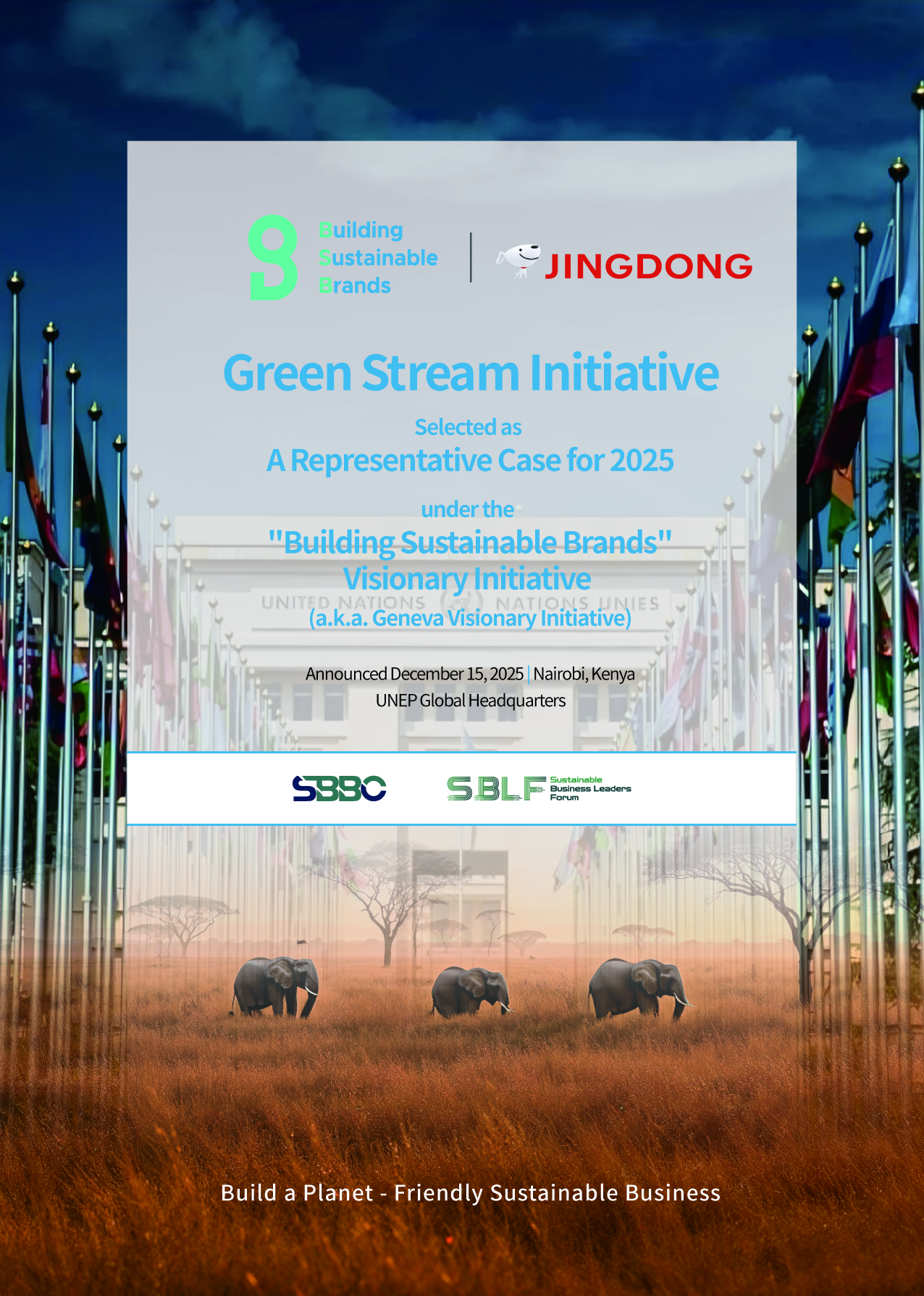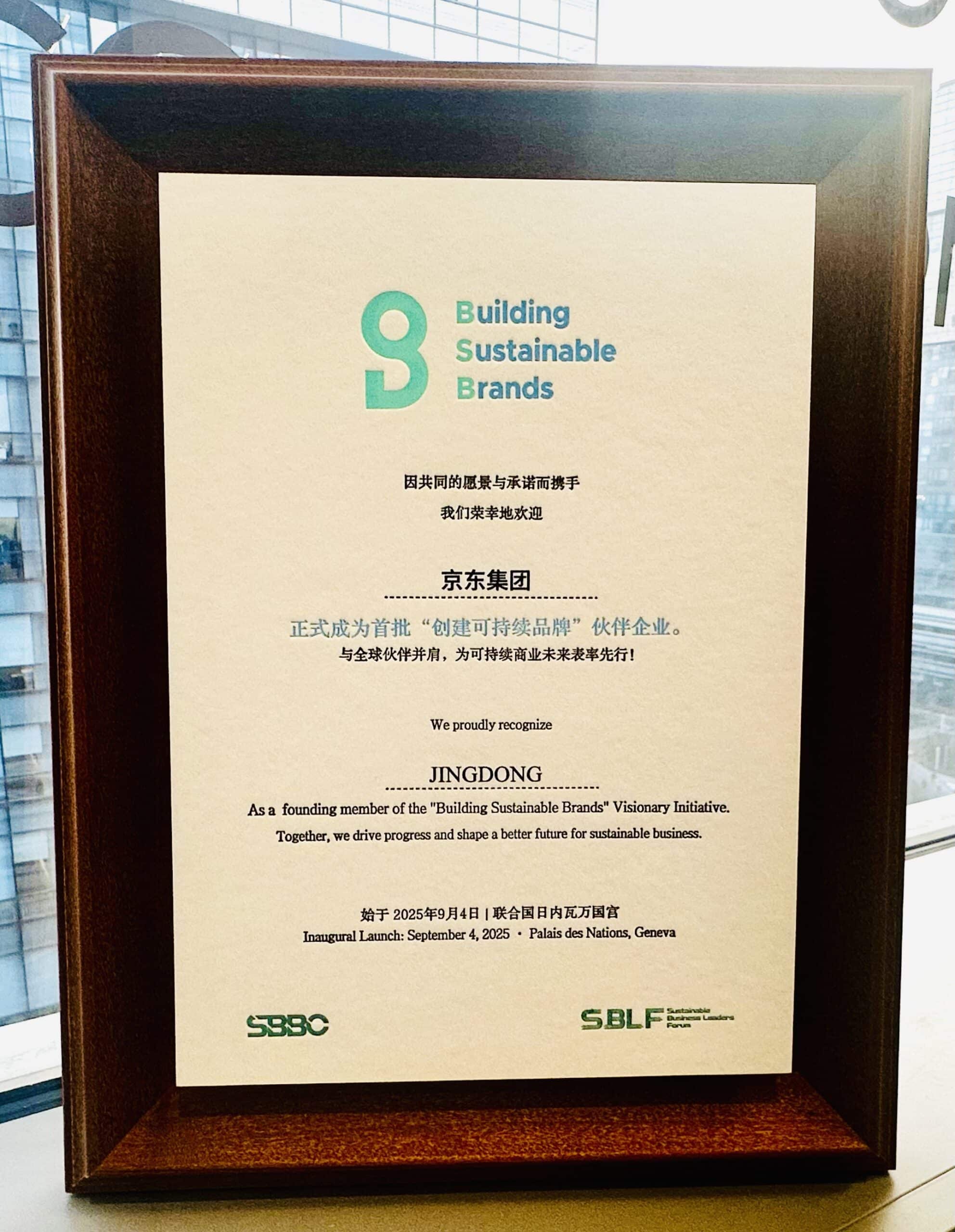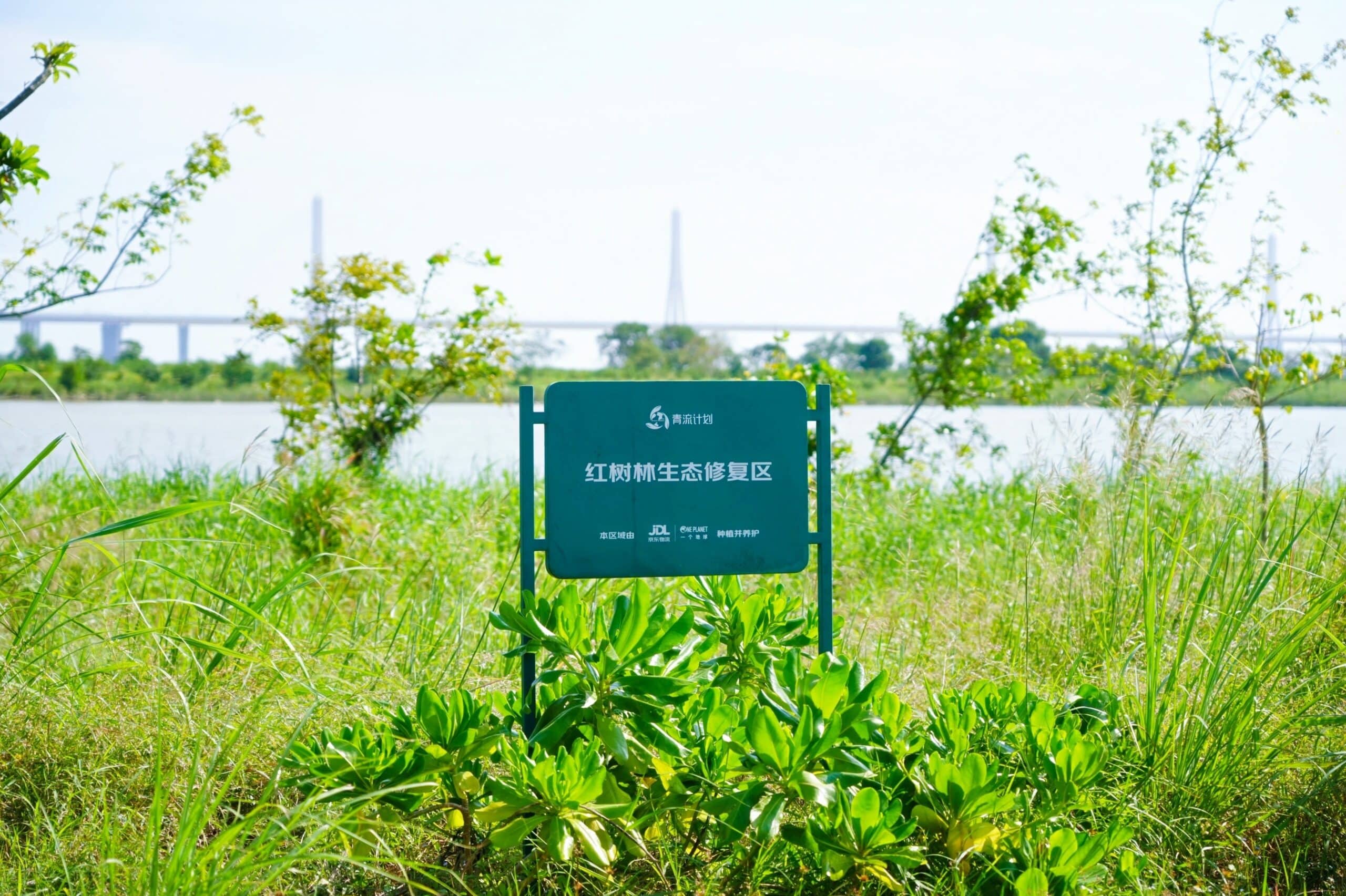JD.com is proud to announce that our flagship sustainability program, the Green Stream Initiative, has been selected as 2025 Sustainable Brand Exemplar at the “Building Sustainable Brands” Visionary Initiative, also known as the Geneva Visionary Initiative.
The honor was announced on December 15th at the United Nations Environment Programme (UNEP) global headquarters in Nairobi, Kenya, which draws leaders from the public and private sector to advance sustainable business practices.

The event was co-organized by UNEP, its One Planet Network, the China Association for Standardization, the Sustainable Business and Branding Working Committee, and the Sustainable Business Leaders Forum. The 2025 case collection spotlights leading examples where sustainability is seamlessly integrated into brand value and core strategy.
As one of the inaugural signatories of the Geneva Visionary Initiative in September 2025, JD.com stands alongside other large companies in illustrating the real-world impact of the Initiative’s five-dimensional framework, which fully integrates sustainability principles into business operations and brand value creation, covering strategy, business systems, products, technology, and branding.

Alison Gray Cairns, Head of UNEP’s Private Sector Unit, commended the visionary ambition of the selected projects and highlighted the innovative ways Chinese enterprises are creating value.
Zhang Xiuchun, Secretary-General of the China Association for Standardization, emphasized that unveiling these cases in Kenya represents a key milestone, shifting the Geneva Visionary Initiative from conceptual agreement to practical, actionable steps that strengthen global competitiveness through responsibility.
Spotlight on Ocean Box Partners
Central to JD.com’s recognition is Ocean Box Partners, a flagship project under the Green Stream Initiative initiated by JINGDONG Logistics, the company’s logistics arm. Building on JINGDONG Logistics’ mangrove restoration efforts that began in 2024, this second-phase project, now renamed Ocean Box Partners and often referred to as “Mangrove Ecosystem Project 2.0”, expands mangrove ecosystems in Hengqin National Wetland Park. These vital blue carbon habitats excel at carbon storage and coastal protection.
Launched on International Day for Biological Diversity (May 22, 2025), it continues to be led by JINGDONG Logistics in partnerships with the One Planet Nature Foundation and guidance from organizations such as the Hengqin-Macau Cooperation Zone, China Express Association, and World Wide Fund for Nature (WWF). In this second phase, the initiative adds 20,000 square meters of restored area, more than doubling the total to over 40,000 square meters.

The “Ocean Box Partners” project emphasizes broader collaboration to engage more participants. Over 52 partners have joined the network, including JD Supermarket, JD Foundation, and global brands such as Haier, Yili Group, Swire Coca-Cola, and Burberry.
Its standout feature is the close integration of conservation with everyday consumer participation. On Green Stream Day (July 6, 2025), with WWF technical support, JD.com linked its online mangrove nurturing platform to customers’ loyalty points. Shoppers can now redeem routine purchases to directly nurture mangrove growth, building on a previous digital campaign that drew over 5 million participants and establishing a compelling “shop-for-good” model that delivers shared benefits.

Built on Strong Sustainability Foundations
Ocean Box Partners draws strength from years of systematic progress under the Green Stream Initiative, which promotes comprehensive green transformation throughout the supply chain to facilitate a seamless shift toward low-carbon operations.

For instance, JINGDONG Logistics has transformed its operations with 139.22 MW of installed solar capacity across facilities by the end of 2024, more than 10,000 new-energy vehicles in its self-operated fleet, and in 2024 alone, 860 million reduced-packaging cartons, 960,000 reusable insulated boxes, and over 290 million recycled cartons.
This international recognition at UNEP headquarters affirms JD.com’s dedication to sustainability. As the Green Stream Initiative demonstrates, true sustainable branding goes beyond messaging—it demands transforming operations with integrated responsibility, supply chain excellence, and ecosystem care. We will continue advancing it to lead eco-friendly consumption and logistics, and set a global standard for responsible supply chains, providing practical, scalable inspiration for companies worldwide building resilient and responsible brands.
(vivian.yang@jd.com)







 National TV on JD: A Young Manager and Her 300 “Colleagues”
National TV on JD: A Young Manager and Her 300 “Colleagues”


